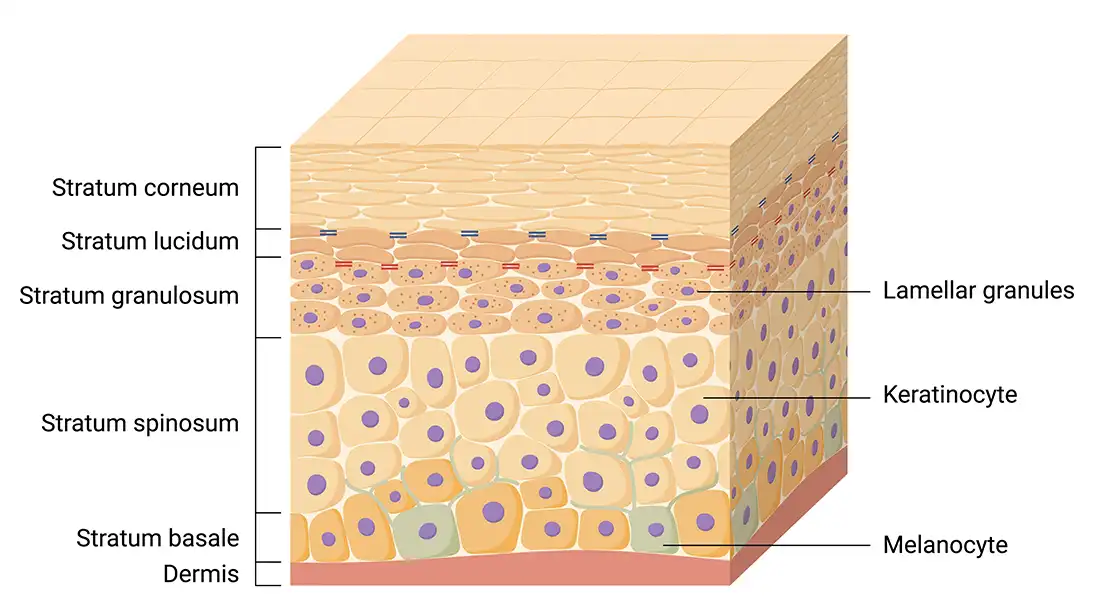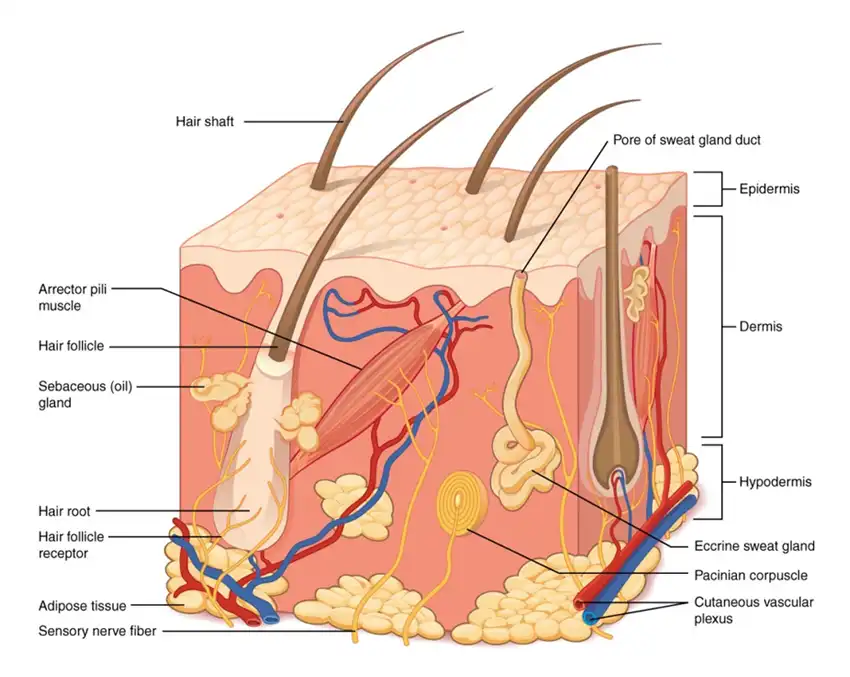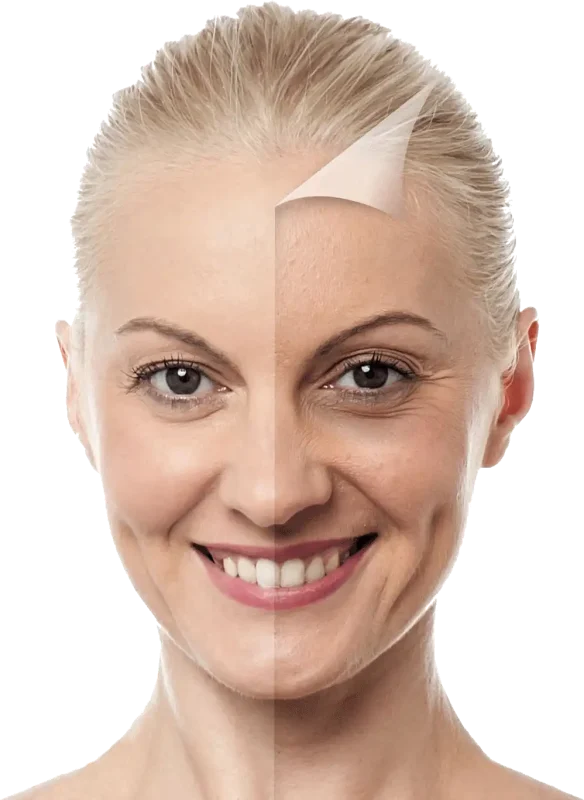Know your Skin
The body's largest organ, skin, covers the entirety of the exterior. The epidermis, dermis, and hypodermis are its three constituent layers, and each has a distinctive architecture and function. The complicated network that makes up the skin's structure acts as the body's first line of defence against viruses, Ultraviolet rays, chemicals, and mechanical harm. Temperature and the quantity of water released into the environment are also controlled by it.
Epidermis
- The epidermis consists of 15 layers of closely connected cells in five layers.
- The top most layer contains 3-4 layers of loose dead cells which can be sloughed off through friction and exfoliation.
- The base layer that makes the epidermis contains malanocytes that produce melanin.

Dermis
- A thick layer that supports the Epidermis and contains all the structures of the skin.
- 70% of the dermis is collagen buried in a jelly like substance called mucopolysaccharides. It holds 70% of water.
- Elastin fibres interwoven between the collagen bundles allow the skin to stretch and snap back into place.
- Hyaluronic acid surrounds and bathes collagen and elastin in natural moisture. Hyaluronic acid has the ability to attract and bind hundred of times its weight in water and the skins own moisture reserve.

Why do we age?
- During the teens, the skin secretes a lot of sebum due to an imbalance of hormones.
- During the late 20s and 30s, most people notice the sign of aging, the effect of sun damage begins to appear in the form of dryness, fine lines and first appearance of wrinkles.
- During 40s, the sebum secretion decreases due to menopause and declining oestrogen levels. The effect of sun damage are even more apparent in the form of pigmentation patches, obvious dryness and rough texture.
Why does our skin Wrinkle?
- The breakdown of collagen and fibrin causes wrinkles to form.
- Dry skin shrivels plump skin cells, which can lead to premature fine lines and wrinkles.
- As you age, your skin produces less of the proteins, collagen and elastin. This makes your skin thinner and less resistant to damage.
- Wrinkles are a natural part of getting older, and there’s no reason to dread getting them. But if you would like to slow the signs of aging on your face, there are natural ways to do so.

